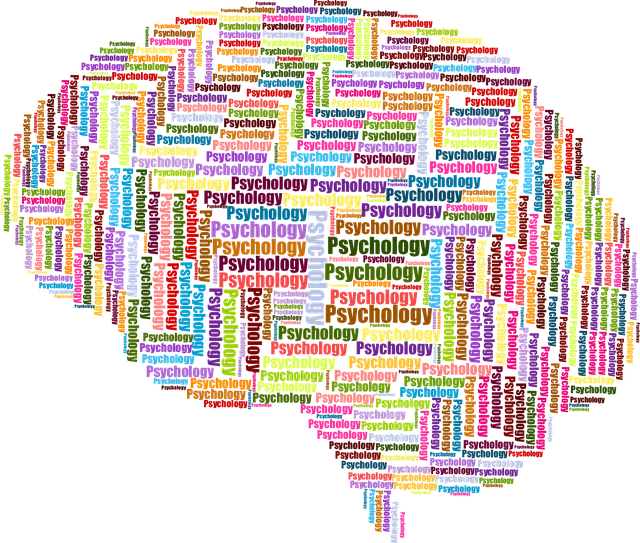Castle Rock Kaiser Permanente promotes holistic healthcare by prioritizing mental well-being through comprehensive programs. These initiatives focus on building resilience, self-care routines, and fostering open discussions without stigma. Their strategic curriculum includes interactive learning, workshops, safe spaces, and evaluation to ensure effective mental health education tailored to the community's needs.
At Castle Rock Kaiser Permanente, we recognize the importance of comprehensive mental health education. This article delves into the strategic design of a transformative program aimed at empowering employees and community members. By understanding prevalent mental health issues unique to our setting, we developed an extensive curriculum. Interactive learning workshops, coupled with safe, confidential spaces, create an engaging environment. Continuous evaluation ensures the program’s effectiveness, fostering a culture of open dialogue and improved well-being at Castle Rock Kaiser Permanente.
- Understanding Mental Health Issues at Castle Rock Kaiser Permanente
- Developing Comprehensive Curriculum for Education Program
- Integrating Interactive Learning Activities and Workshops
- Fostering Safe Spaces: Privacy and Confidentiality in Mental Health Education
- Measuring Success: Evaluating Impact and Enhancing the Program Continuously
Understanding Mental Health Issues at Castle Rock Kaiser Permanente

At Castle Rock Kaiser Permanente, recognizing and addressing mental health issues is a cornerstone of their comprehensive healthcare approach. The organization understands that mental wellness is an integral part of overall health and well-being, and they strive to equip individuals with the knowledge and tools needed to navigate life’s challenges. Through various initiatives focused on mental health awareness, Castle Rock Kaiser Permanente aims to foster a supportive environment where employees and community members can openly discuss their struggles and seek help without stigma.
One key aspect of their program design is promoting resilience building as a proactive strategy. This involves teaching individuals coping mechanisms, stress management techniques, and emotional regulation skills to better handle life’s stressors. Additionally, encouraging the self-care routine development for better mental health is encouraged, emphasizing activities like exercise, mindfulness practices, and maintaining social connections. These initiatives not only support immediate mental well-being but also empower individuals to build long-term resilience.
Developing Comprehensive Curriculum for Education Program

Developing a comprehensive curriculum is key to designing an effective mental health education program, especially when collaborating with institutions like Castle Rock Kaiser Permanente. The first step involves identifying core topics and themes that align with the organization’s goals and the broader community’s needs. This may include addressing common mental health issues, promoting coping strategies, fostering resilience, and encouraging open conversations about mental wellness. Incorporating diverse learning methods is essential; for instance, combining theoretical lectures with practical exercises like Mental Wellness Journaling Exercises can enhance engagement and knowledge retention.
Additionally, the curriculum should incorporate interactive components such as group discussions, case studies, and role-playing scenarios to simulate real-life situations. Encouraging participants to share their experiences through journaling or other reflective practices allows for personal growth and a deeper understanding of mental health concepts. Further, integrating Public Awareness Campaigns Development strategies into the program can help dispel myths, reduce stigma, and promote positive thinking within the community, ensuring a holistic approach to mental health education.
Integrating Interactive Learning Activities and Workshops

Integrating Interactive Learning Activities and Workshops into Castle Rock Kaiser Permanente’s mental health education programs is a dynamic approach that fosters engagement and deep learning. These experiential methods, tailored to the diverse needs of participants, can include role-playing scenarios addressing real-life challenges in mental healthcare. By actively participating in these simulations, learners cultivate cultural sensitivity in mental healthcare practice, enhance their ability to connect with clients from various backgrounds, and develop effective self-care practices.
Workshops focused on emotional well-being promotion techniques empower individuals to recognize and manage their mental health proactively. Interactive elements encourage open dialogue, creative problem-solving, and the exchange of diverse perspectives. This hands-on approach not only complements theoretical knowledge but also ensures that participants leave with practical tools and strategies for both personal and professional contexts, aligning with Castle Rock Kaiser Permanente’s commitment to holistic mental healthcare.
Fostering Safe Spaces: Privacy and Confidentiality in Mental Health Education

Creating safe and supportive environments is paramount when designing mental health education programs. At Castle Rock Kaiser Permanente, this translates into prioritizing privacy and confidentiality as foundational elements for effective learning. Participants in mental health educational initiatives should feel secure sharing their experiences and insights without fear of judgment or repercussions. Establishing clear boundaries and ensuring sensitive data protection fosters an atmosphere of trust, encouraging open dialogue about challenging topics like burnout prevention strategies for healthcare providers.
By integrating crisis intervention guidance into the curriculum, these programs can better equip individuals to handle confidential discussions sensitively. This includes training educators on recognizing warning signs in participants’ sharing and responding appropriately. Ultimately, fostering safe spaces encourages honest exploration of mental wellness coaching program development, ensuring that all learners feel valued and supported throughout their educational journey.
Measuring Success: Evaluating Impact and Enhancing the Program Continuously

Measuring success is an integral part of designing effective mental health education programs. At Castle Rock Kaiser Permanente, we employ a multi-faceted approach to evaluating impact. This involves both qualitative and quantitative methods, such as participant feedback forms and anonymous surveys, to gauge changes in emotional intelligence, conflict resolution techniques, and confidence boosting among attendees. By collecting this data, we can identify areas where the program excels and aspects that need refinement.
Continuous improvement is a key benefit of robust evaluation strategies. Using the insights gathered from these assessments, our team can make informed adjustments to the curriculum, ensuring it remains relevant and tailored to the needs of the community. This iterative process not only enhances the effectiveness of the Castle Rock Kaiser Permanente mental health education program but also promotes long-term positive outcomes for participants.
The development of a robust mental health education program, as demonstrated by Castle Rock Kaiser Permanente’s initiative, involves integrating various components such as understanding local mental health needs, creating comprehensive curricula, and utilizing interactive learning methods. By fostering safe spaces that prioritize privacy and confidentiality, this program ensures individuals feel comfortable seeking support. Continuous evaluation and enhancement based on measured impact are crucial for optimizing the program’s effectiveness in addressing Castle Rock Kaiser Permanente mental health issues.






